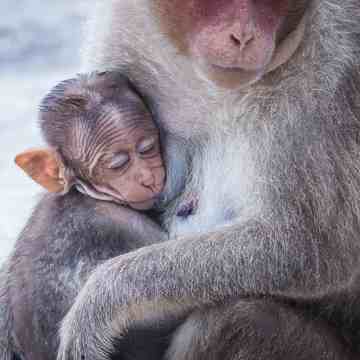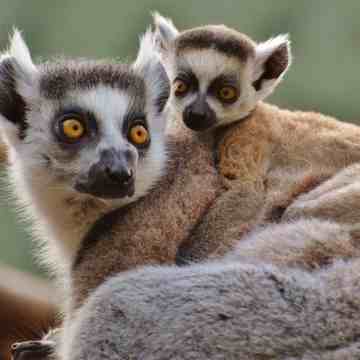Every year, on October 4th, the world comes together to celebrate World Animal Day, a global event dedicated to championing the rights and welfare of animals. It’s a day when we pause to honor our furry, feathered, and finned friends, and reflect on the vital role they play in our lives and ecosystems.
In this comprehensive guide, we’ll take you on a journey through the fascinating world of World Animal Day, exploring its history, significance, and myriad ways to participate in this international day of action.
In this article, we’ll discover the intriguing origins of World Animal Day, dating back to 1925, and how it has evolved into a powerful movement for animal advocacy. We’ll unravel the true history behind this day, dispelling any misconceptions, and uncover the remarkable individuals and events that have shaped its trajectory.
History of World Animal Day
World Animal Day, a worldwide celebration of animal rights and welfare, traces its roots back to a visionary cynologist named Heinrich Zimmermann. In 1925, driven by his deep love for animals and a burning desire to improve their welfare, Zimmermann organized the inaugural World Animal Day event. Held at the Sports Palace in Berlin, Germany, this groundbreaking gathering drew an astounding 5,000 attendees—a testament to the burgeoning global interest in animal welfare
The initial choice of date for this event was March 24, symbolizing a significant step in the early journey of World Animal Day. However, the alignment with the feast day of Saint Francis of Assisi, the patron saint of animals and ecology, was always a guiding light. Due to venue availability, the first celebration was rescheduled to October 4, a date that would soon become synonymous with this meaningful day.

It’s worth noting a common misconception that attributes the inception of World Animal Day to a convention of ecologists in Florence, Italy, in 1931. While this convention did play a role in raising awareness about the plight of endangered species, World Animal Day had already found its footing thanks to Zimmermann’s unwavering dedication. The convention, rather than being the birth of the day, contributed to its growing popularity and international recognition.
Over time, World Animal Day transcended borders and found its place in the hearts of people across the globe. This day is not just a momentary celebration; it has become a powerful movement, endorsed by notable figures and supported by countless individuals who share a common goal: to protect and cherish the animals that share our planet.
The association with Saint Francis of Assisi, renowned for his extraordinary affinity with animals, further solidifies the spiritual and ethical underpinnings of World Animal Day. The date of October 4, originally chosen to honor Saint Francis, is a poignant reminder of our responsibility to care for and advocate on behalf of all creatures, great and small.
Significance of World Animal Day
World Animal Day holds profound significance in the realm of animal rights and welfare, serving as a global reminder of our collective responsibility towards the creatures that share our planet. Its importance can be summarized in three key aspects:
1. Advocacy for Animal Rights and Welfare
At its core, World Animal Day is a platform for advocating the rights and welfare of animals. It’s a day when individuals, organizations, and communities come together to raise their voices on behalf of those who cannot speak for themselves. This day serves as a rallying point for the protection of animals from cruelty, exploitation, and neglect. It emphasizes the ethical treatment of animals in various contexts, from farms to laboratories, and from pets to wildlife.
2. Raising Awareness about Endangered Species and Ecological Issues:
World Animal Day extends its impact beyond the realms of domesticated animals to encompass all creatures, including those facing the threat of extinction. This day underscores the importance of biodiversity and the delicate balance within ecosystems. It draws attention to the critical need for conservation efforts, whether it’s safeguarding endangered species or addressing the broader ecological challenges of our time, such as habitat loss and climate change. Through education and awareness campaigns, World Animal Day encourages us to take concrete steps towards preserving the natural world.
3. Contributions from Organizations like Naturewatch Foundation:
The success of World Animal Day owes much to the dedication and efforts of organizations committed to animal welfare. One notable example is the Naturewatch Foundation, a UK-based charity that has taken the reins in coordinating World Animal Day since 2003. These organizations play a pivotal role in facilitating global participation, organizing events, and disseminating resources to empower individuals and communities to make a positive impact on animals’ lives. Their involvement amplifies the reach and impact of World Animal Day, fostering a sense of unity and purpose among animal advocates worldwide.

In summary, World Animal Day is not merely a date on the calendar; it is a powerful catalyst for change in the way we perceive and treat animals. It resonates with a universal call to action, advocating for their rights and welfare, raising awareness about endangered species and ecological issues, and benefiting from the dedicated efforts of organizations like the Naturewatch Foundation. Through collective action and a shared commitment to compassion, World Animal Day continues to make a significant difference in the lives of animals and the health of our planet.
How to Celebrate World Animal Day
World Animal Day is a perfect opportunity to show your love and support for animals in various meaningful ways. Here’s a comprehensive list of ways you can celebrate this special day:
1. Stand Up for Animals
- Get involved with charitable organizations that champion animal rights and welfare. Donate your time, skills, or resources to support their missions.
- Organize events at your workplace or within your community to raise awareness about animal welfare issues. Invite local animal advocacy groups to speak or host workshops.
- Attend group meetings and discussions about animal welfare in your community. Join the conversation and contribute your ideas and expertise.
- Use the power of social media to share information, stories, and resources related to animal welfare. Advocate for policies that protect animals, and encourage your friends and followers to do the same.
2. Make Animal-Friendly Purchases:
- Prioritize cruelty-free products when shopping for cosmetics, skincare, and personal care items. Look for PETA or Leaping Bunny certifications to ensure the products you use are not tested on animals.
- Support companies that are committed to ethical and animal-friendly practices in their products. The Vegan Society is a valuable resource for finding vegan alternatives in various categories, from food to clothing.
- Consider adopting a more plant-based diet and reducing your consumption of animal products. Explore delicious and sustainable plant-based recipes to incorporate into your meals.
- Swap out animal-based products with vegan alternatives. Opt for plant-based milk, yogurt, cheese, and meat substitutes. By making these choices, you contribute to reducing the demand for animal products.
3. Reduce Meat Consumption and Adopt a Plant-Based Diet:

- Even if you’re not ready to go completely vegetarian or vegan, you can make a positive impact by reducing your meat consumption. Try meatless meals a few times a week.
- Experiment with plant-based ingredients in your favorite recipes. Use beans, lentils, tofu, and other protein-rich options as meat substitutes in dishes like tacos, burgers, and stir-fries.
- Explore the diverse world of fruits, vegetables, grains, and legumes to create delicious, nutritious, and animal-friendly meals.
4. Volunteer to Help Animals:
- Extend your commitment to animal welfare beyond World Animal Day by volunteering at a local animal shelter or rescue organization.
- Offer your time and expertise to organizations that work towards protecting and caring for animals in your community.
- Consider volunteering on an ongoing basis or making a long-term commitment to support these organizations.
- Engage in activities like animal rescue, fostering, or educational outreach to create a positive impact on the lives of animals in need.
- By participating in these activities and incorporating them into your daily life, you can make a significant difference in the lives of animals and contribute to the broader movement for animal rights and welfare. World Animal Day is a reminder that every action, no matter how small, counts towards creating a more compassionate world for all creatures.
World Animal Day Timeline
Going Greek (530 BCE):
Greek philosopher Pythagoras became one of the first in a long line of Greek and Roman philosophers to teach that animals have souls and advocate for vegetarianism, laying the early philosophical groundwork for animal rights.
Early Veganism (1624):
Early vegan Lewis Gompertz published “Moral Inquiries on the Situation of Man and of Brutes,” one of the first books advocating for animal rights, challenging societal norms of his time.
The Power of Literature (1877):
Anna Sewell’s novel “Black Beauty” is published, becoming the first English novel written from the perspective of a non-human. It sparks debate over the treatment of horses and influences public perceptions of animal rights.
Animal Victory (1931):
The International Animal Protection Congress in Florence, Italy, unanimously accepts and adopts World Animal Day globally, leading to increased international awareness and action for animal welfare.
SAPL Makes Waves (1955):
The Society for Animal Protective Legislation (SAPL) became the first organization to lobby for humane slaughter legislation in the United States, signaling a growing commitment to legislative change in the treatment of animals.
Contemporary Animal Rights Movement (20th Century to Present):
The animal rights movement has gained momentum worldwide, driven by notable figures such as Jane Goodall, a primatologist and animal rights activist, who significantly advances our understanding of animal intelligence and social structures.
Activists like Ingrid Newkirk, co-founder of People for the Ethical Treatment of Animals (PETA), launch powerful campaigns to challenge animal exploitation in industries such as cosmetics, fashion, and entertainment.
Legislation evolves to reflect changing attitudes towards animals. The Animal Welfare Act in the United States and similar laws in other countries are enacted to protect animals used in research, exhibition, and transport.
The development of animal rights ethics, rooted in the work of philosophers like Peter Singer, Tom Regan, and others, deepens our understanding of animals as sentient beings with intrinsic value.
Awareness campaigns, documentaries, and investigative journalism expose the cruel treatment of animals in factory farming, leading to a surge in interest in vegetarianism, veganism, and ethical food choices.
Organizations like the Naturewatch Foundation continue to coordinate events like World Animal Day, fostering global awareness and engagement in the animal rights movement.
Why World Animal Day is Important

1. Protecting Ecosystems and Maintaining Ecological Balance:
World Animal Day holds a vital role in safeguarding ecosystems and preserving ecological equilibrium. Ecosystems are intricate webs of interdependence, where each species plays a unique part in maintaining balance. When one species is threatened or lost, it can set off a chain reaction with far-reaching consequences. World Animal Day serves as a global reminder of the fragility of these ecosystems and the importance of conserving the diversity of life on Earth.
By focusing on animal welfare and raising awareness about endangered species, this day promotes the protection of biodiversity. Ensuring that animals thrive in their natural habitats contributes to the overall health and stability of our planet. Healthy ecosystems are vital for clean air, clean water, and climate regulation, making World Animal Day a cornerstone in our efforts to protect the environment for future generations.
2. Embracing Unity in Animal Advocacy:
One of the remarkable aspects of World Animal Day is its power to unite people from diverse backgrounds and perspectives. This event transcends nationality, faith, religion, and political ideology. It brings together individuals, communities, and organizations that might not ordinarily work together. In doing so, it emphasizes the universal values of compassion and empathy for animals.
This unifying nature fosters a sense of global solidarity, highlighting our shared responsibility for animal welfare. It reinforces the idea that animals are sentient beings deserving of respect, care, and protection, regardless of cultural or geographic differences. World Animal Day underscores our common humanity and shared connection to the animal kingdom, forging a collective commitment to improving their lives.
3. Positive Impact on a Global Scale:
World Animal Day has made a tangible difference in numerous countries, sparking positive change in the treatment and protection of animals. Examples of its impact include:
Egypt: World Animal Day events in Egypt have led to additional clauses in the Egyptian constitution that offer rights to animals. This legislative recognition is a significant step forward in acknowledging animals as sentient beings deserving of legal protection.
Sudan: In Sudan, the celebration of World Animal Day has prompted the introduction of new legislation aimed at safeguarding animals. These laws seek to address issues related to animal cruelty and promote their welfare, marking a significant advancement in animal protection.
These examples illustrate how World Animal Day serves as a catalyst for meaningful change, inspiring nations to take concrete steps towards better animal welfare. They demonstrate that this global event not only raises awareness but also drives tangible progress in legislation and attitudes towards animals.
5 Fun Animal Facts
Sealife Harmony: Seahorses are not only known for their unique appearance but also for their fascinating behavior. These marine creatures mate for life, and when they travel, they hold each other’s tails, forming enchanting “seahorse chains” as they glide through the ocean.
Heartheaded Shrimp: It’s not just humans who have hearts. Did you know that a shrimp’s heart is located in its head? This quirky fact showcases the remarkable diversity of nature’s designs.
Outside Voices of the Deep: The blue whale, the largest animal on Earth, can produce the loudest sound of any creature, reaching up to a staggering 188 decibels. To put it in perspective, that’s louder than a jet engine. These magnificent giants communicate across vast oceanic expanses with their powerful vocalizations.
A Tiger’s Stripes: Tigers are known for their striking striped patterns, and here’s a captivating fact: each tiger’s skin has a unique stripe pattern. It’s akin to a fingerprint for these majestic big cats, making each one truly one-of-a-kind.
The True Color of Flamingos: Flamingos are naturally white! Their diet of brine shrimp, algae, and other foods rich in pigments gradually turns their feathers pink. The more they consume these natural sources of pigmentation, the pinker they become. It’s a fantastic example of how diet can influence an animal’s appearance.
Quotes And Messages on World Animal Day
- “The greatness of a nation and its moral progress can be judged by the way its animals are treated.” – Mahatma Gandhi
- “Animals are such agreeable friends; they ask no questions, they pass no criticisms.” – George Eliot
- “The love for all living creatures is the most noble attribute of man.” – Charles Darwin
- “In the eyes of a compassionate human, every creature is a masterpiece.” – Unknown
- “The earth does not belong to us: we belong to the earth.” – Marlee Matlin
- “Animals are the bridge between us and the beauty of all that is natural. They show us what’s missing in our lives, and how to love ourselves more completely and unconditionally.” – Trisha McCagh
- “The greatness of a nation and its moral progress can be judged by the way its animals are treated.” – Mahatma Gandhi
- “The more helpless a creature, the more entitled it is to protection by man from the cruelty of man.” – Mahatma Gandhi
- “Until one has loved an animal, a part of one’s soul remains unawakened.” – Anatole France
- “Animals are reliable, full of love, true in their affections, predictable in their actions, grateful, and loyal. Difficult standards for people to live up to.” – Alfred A. Montapert
Messages
- On World Animal Day, let’s pledge to be their voice and protect those who cannot speak for themselves.
- Each animal on this planet plays a vital role in maintaining the ecological balance. Let’s ensure their conservation and well-being.
- Today, let’s celebrate the beauty of the animal kingdom and work together for a world where they are treated with kindness and respect.
- Our furry, feathered, and finned friends enrich our lives in countless ways. Let’s cherish and care for them on World Animal Day and every day.
- Animals bring joy, companionship, and love into our lives. Let’s return the favor by advocating for their rights and welfare.
- The world is a better place with animals in it. Let’s protect their habitats and ensure they can thrive alongside us.
- Remember, our actions have a profound impact on the lives of animals. Let’s make choices that promote their well-being and preserve their natural habitats.
- On World Animal Day, let’s commit to learning more about animals, their needs, and how we can make the world a safer and happier place for them.
- Every creature on Earth deserves to live a life free from suffering. Let’s unite in compassion and make a difference for animals everywhere.
- “Until we extend our circle of compassion to all living beings, humanity will not find peace.” – Albert Schweitzer. Let’s strive for a more compassionate world for animals and humans alike.
Conclusion
In our exploration of World Animal Day, we’ve uncovered a rich tapestry of history, significance, and global impact. From its origins in 1925 with Heinrich Zimmermann’s vision to its present-day role as a beacon of hope for animal rights and welfare, this annual celebration has left an indelible mark on our world.
World Animal Day stands as a rallying cry for the protection of animals and the preservation of our planet’s delicate ecosystems. It reminds us that animals are not mere commodities but sentient beings deserving of respect, care, and compassion. Through this day, we’re called to action, to speak up for those who cannot speak for themselves, and to make choices that reflect our commitment to their well-being.
The importance of World Animal Day cannot be overstated. It’s a reminder of our shared responsibility to protect the diversity of life on Earth, from the tiniest insects to the largest whales. It underscores the unifying power of compassion, transcending boundaries, and bringing people from all walks of life together for a common cause.
As we approach October 4th, we encourage you, our readers, to get involved and make a difference. Whether it’s standing up for animals, making compassionate choices in your purchases, reducing your meat consumption, or volunteering at local animal shelters, your actions can have a profound impact. World Animal Day is not just a day on the calendar; it’s an opportunity for positive change and a chance to honor the creatures that share our planet.

